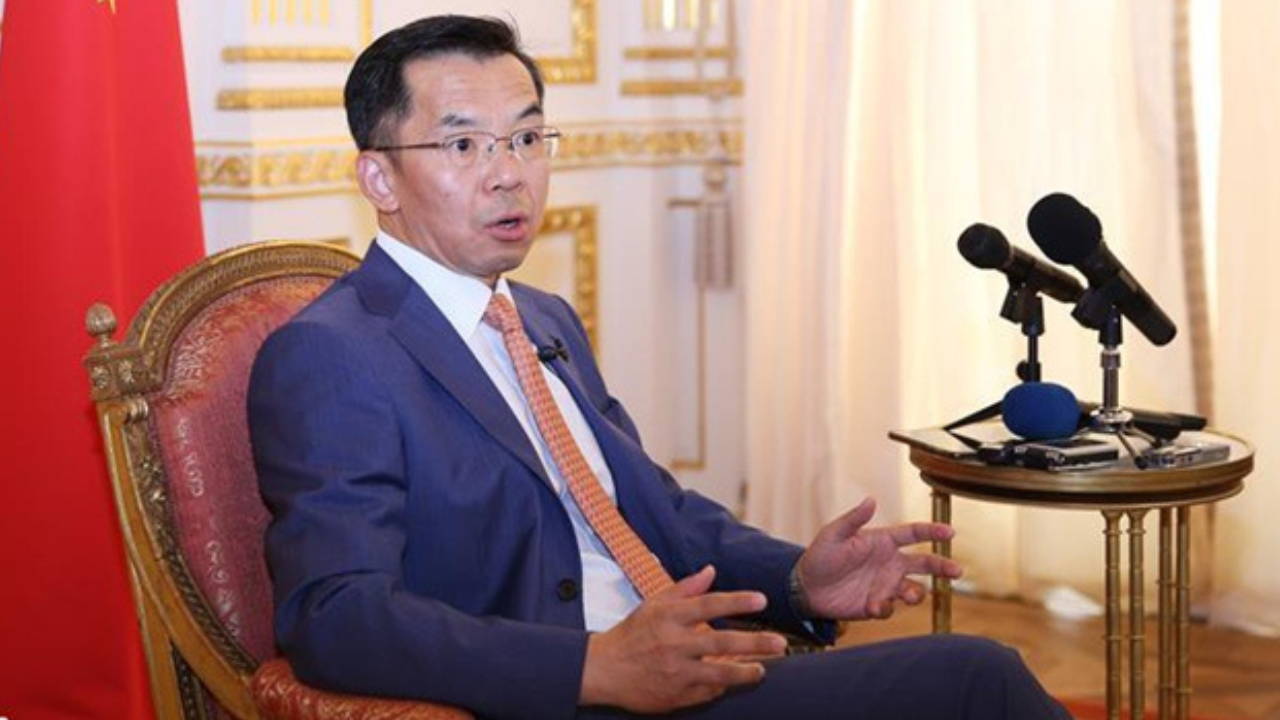This website uses cookies so that we can provide you with the best user experience possible. Cookie information is stored in your browser and performs functions such as recognising you when you return to our website and helping our team to understand which sections of the website you find most interesting and useful.

PARIS: China's ambassador to France has sparked anger in eastern Europe and Ukraine while drawing a rebuke in Paris after questioning the sovereignty of post-Soviet countries.
Speaking Friday on the LCI news channel, ambassador Lu Shaye suggested countries that emerged after the fall of the Soviet Union "don't have effective status under international law because there is not an international agreement confirming their status as sovereign nations."
The comments cast doubt not just on Ukraine, which Russia invaded last February, but all former Soviet republics which emerged as independent nations after the fall of the Soviet Union in 1991, including members of the European Union.
Ukrainian presidential aide Mykhaylo Podolyak said on Sunday that the status of post-Soviet countries was "enshrined in international law", while he also took issue with Lu's comments on Crimea which was occupied by Russia in 2014.
Asked if Crimea was Ukrainian during his interview on LCI, Lu replied, "it depends on how you look at the problem. There's history. Crimea was Russian at the start."
"It is strange to hear an absurd version of the 'history of Crimea' from a representative of a country that is scrupulous about its thousand-year history," Podolyak said, referring to China.
The foreign ministers of Baltic countries Estonia, Lithuania and Latvia, all former Soviet republics which joined the EU after independence, condemned the comments from Lu, who is part if a new class of outspoken Chinese diplomats.
Latvia's foreign minister Edgars Rinkevics wrote on Twitter that his views were "completely unacceptable", while Estonia's Margus Tsahkna called them "false and a misinterpretation of history."
'Don't trust China'
The timing of the controversy is embarrassing for French President Emmanuel Macron who visited Beijing this month to encourage Chinese President Xi Jinping to put pressure on Russian leader Vladimir Putin to end his invasion of Ukraine.
Macron's trip caused unease among some Western allies who are sceptical of China's intentions, given Xi's formal alliance with Russia.
A statement issued Saturday by the French foreign ministry said it had "learned with consternation about the statements from the Chinese ambassador in France about the borders of countries that became independent after the fall of the Soviet Union".
"It remains up to China to say whether these statements reflect its position which we hope not to be the case," it added.
Lithuanian foreign minister Gabrielius Landsbergis wrote on Twitter that "if anyone is still wondering why the Baltic States don't trust China to 'broker peace in Ukraine', here's a Chinese ambassador arguing that Crimea is Russian and our countries' borders have no legal basis".
China has sought to portray itself as a neutral party in the Ukraine conflict and has proposed a political solution to the conflict which was rejected by Kyiv and its Western backers.
"If you want to be a major political player, do not parrot the propaganda of Russian outsiders," Ukrainian presidential aide Mykhaylo Podolyak added.
Countries that emerged from the breakup of the Soviet Union were admitted as sovereign members of the United Nations, with China recognising them at the time.
'Wolfwarrior'
Lu has previously acknowledged being part of the so-called "wolf warrior" class of Chinese diplomats, a nickname given to those who respond vehemently to critics they perceive as hostile to China.
In January 2019, he accused Canada of "white supremacy" for calling for the release of two Canadians detained in China, days after Huawei executive Meng Wanzhou was arrested in Canada at the request of the US.
After taking up a new role in Paris, he caused a fresh diplomatic spat in 2021 when he called a critical French researcher a "little thug" and a "troll" on Twitter.
He also took aim at French lawmakers who were weighing a trip to Taiwan which China is threatening to seize by force.
Summoned by the French foreign ministry over the "insults and threats", he took the highly unusual step of delaying his appearance, citing "scheduling issues".
This sparked further irritation in Paris.
"Neither France nor Europe is a doormat," then Europe Minister Clement Beaune warned. "When you are summoned as an ambassador, you pay a visit to the foreign ministry."
Read More



 Africana55 Radio
Africana55 Radio 

